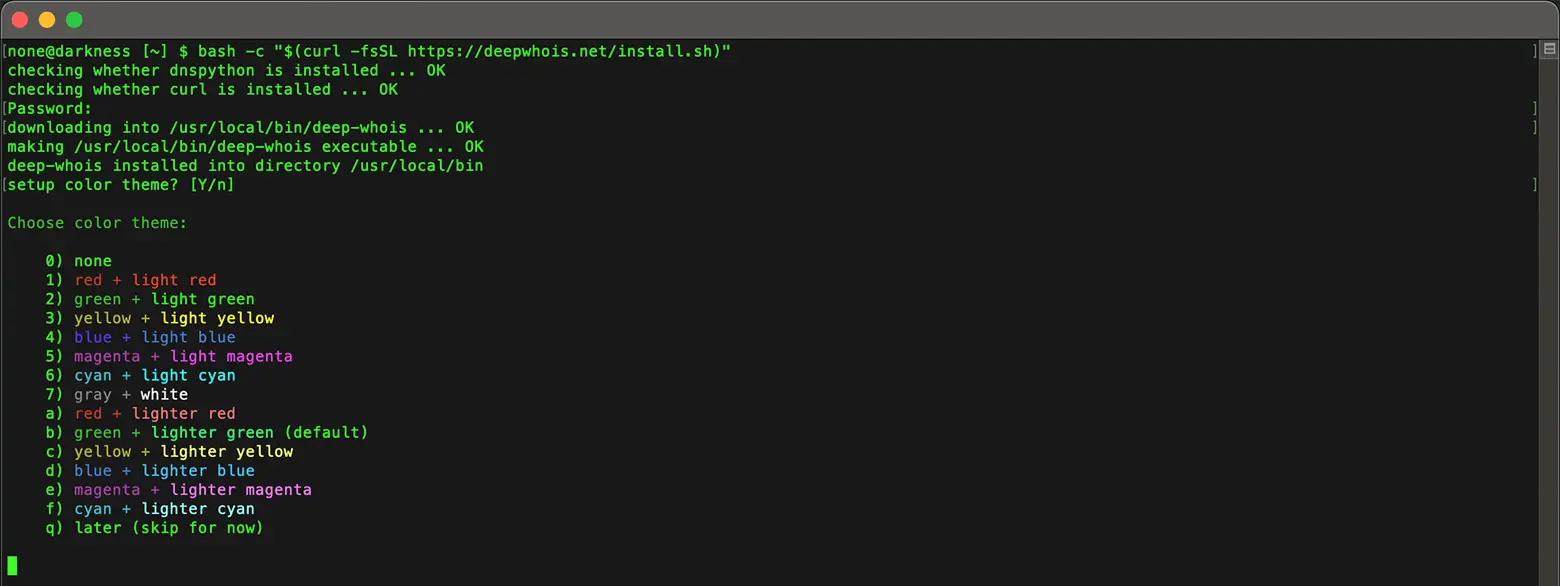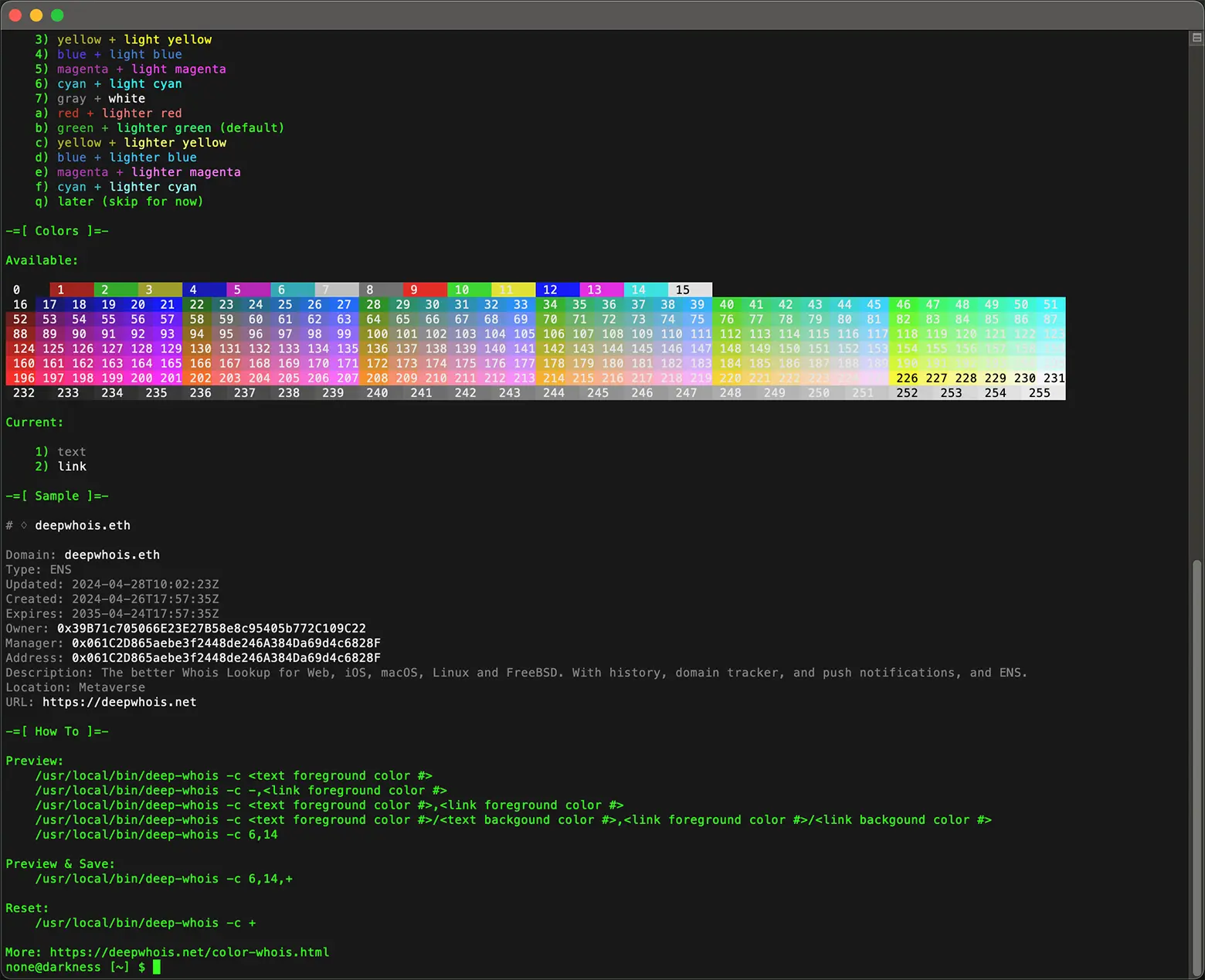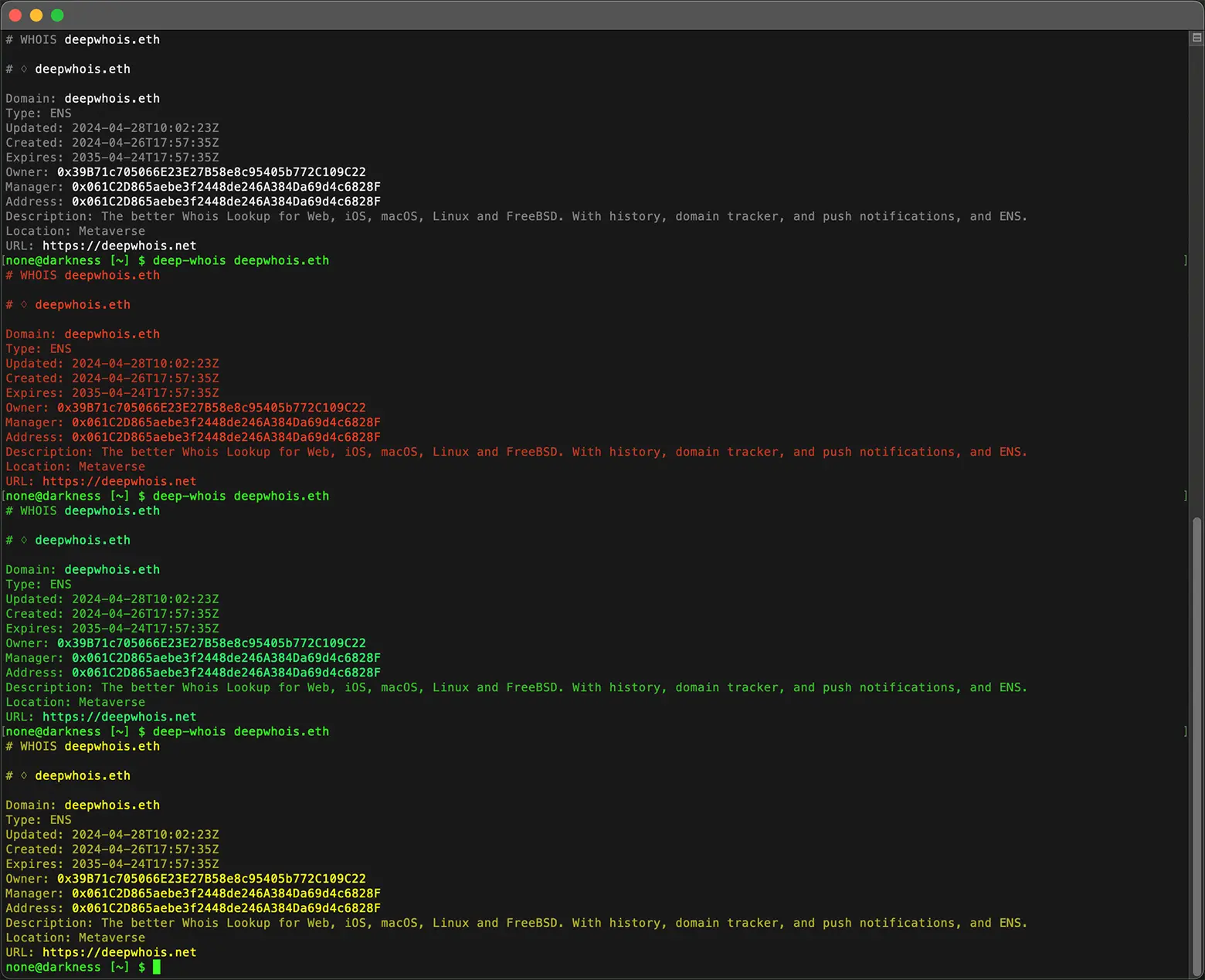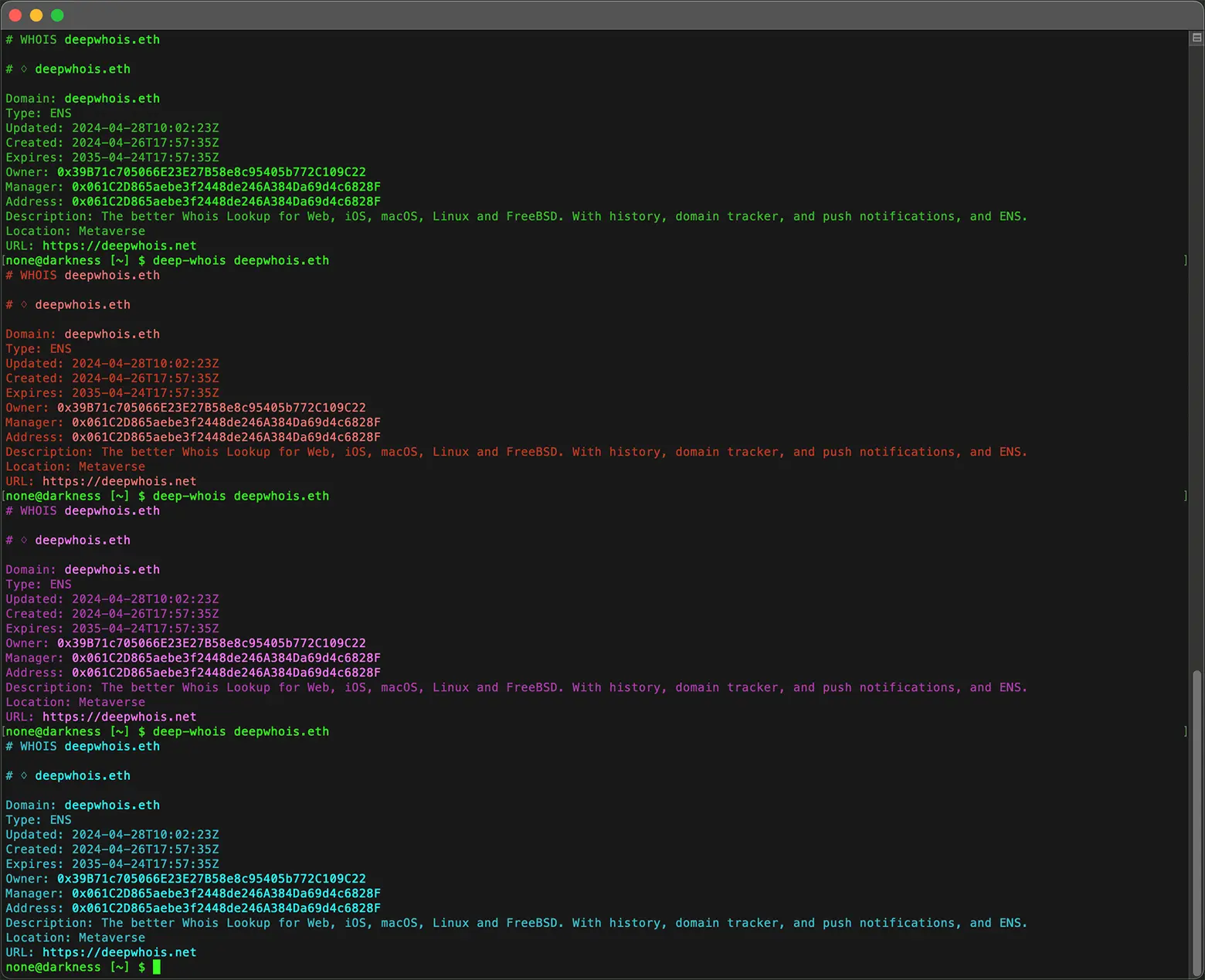Color Whois for Terminal
(macOS, Linux, FreeBSD)

Set Up Colors
In the Deep Whois command line utility for macOS, Linux, and FreeBSD, you can select a predefined Whois color theme during the initial installation.

To customize colors later, simply run the 'deep-whois -c' command. This allows you to set individual colors for Whois text, links, domain names, and IPv4/IPv6 data.
Additionally, the Terminal version lets you configure separate background colors for regular text and highlighted data elements, giving you full control over your Whois display.
Examples
Commands
Setup Whois Colors:
deep-whois -c
To display available colors run 'deep-whois -c'. It will show supported color numbers.

Supported color theme definition format:
<text color>/<text backgound>,<link color>/<link backgound>
You can skip setting background colors.
It should be used together with the -c option.
Set and save colors using color numbers: #6 (cyan) for text, color #14 (light cyan) for links:
deep-whois -c 6,14,+
Also, standard colors can be referred by name: black, red, green, yellow, blue, magenta, cyan, light gray, gray, light red, light green, light yellow, light blue, light magenta, light cyan, white.
Set and save colors using color names: cyan for text, light cyan for links:
deep-whois -c cyan,lighter-cyan,+
On terminals supporting 256 colors there are also: lighter red, lighter green, lighter yellow, lighter blue, lighter magenta and lighter cyan.
Color names should use dash instead of spaces.
The color theme definition is saved to the file named '~/.deep-whois-theme' or alternatively you can put it into the DEEP_WHOIS_THEME environment variable.
DEEP_WHOIS_THEME=cyan,lighter-cyan ; export DEEP_WHOIS_THEME
Reset Whois Colors:
deep-whois -c +
Or just delete the file named '~/.deep-whois-theme'.
rm -f ~/.deep-whois-theme
Colors
White, Red, Lighter Green (Terminal), and Yellow

Green, Lighter Red, Magenta, and Cyan
